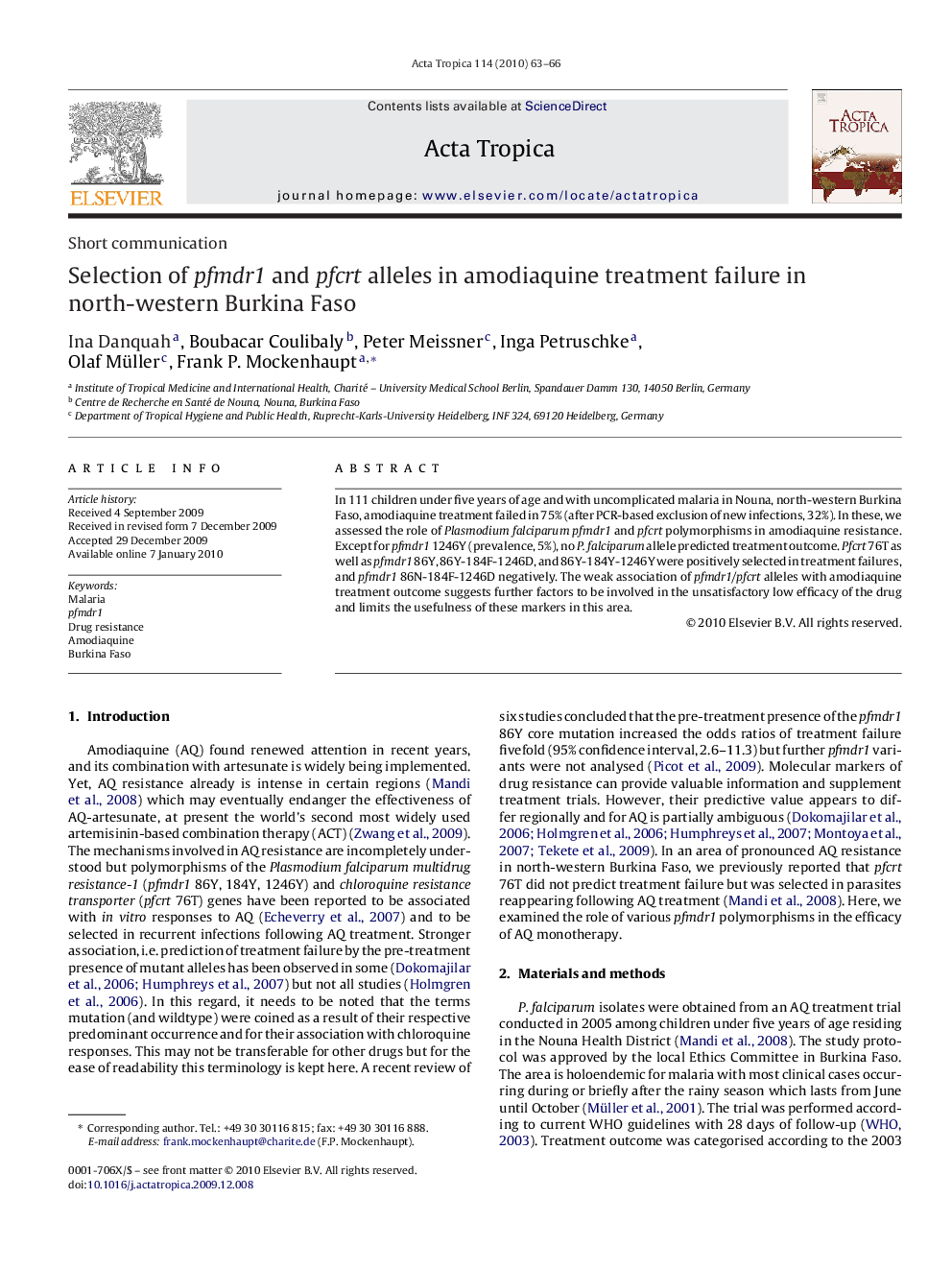| Article ID | Journal | Published Year | Pages | File Type |
|---|---|---|---|---|
| 6128392 | Acta Tropica | 2010 | 4 Pages |
Abstract
In 111 children under five years of age and with uncomplicated malaria in Nouna, north-western Burkina Faso, amodiaquine treatment failed in 75% (after PCR-based exclusion of new infections, 32%). In these, we assessed the role of Plasmodium falciparum pfmdr1 and pfcrt polymorphisms in amodiaquine resistance. Except for pfmdr1 1246Y (prevalence, 5%), no P. falciparum allele predicted treatment outcome. Pfcrt 76T as well as pfmdr1 86Y, 86Y-184F-1246D, and 86Y-184Y-1246Y were positively selected in treatment failures, and pfmdr1 86N-184F-1246D negatively. The weak association of pfmdr1/pfcrt alleles with amodiaquine treatment outcome suggests further factors to be involved in the unsatisfactory low efficacy of the drug and limits the usefulness of these markers in this area.
Related Topics
Life Sciences
Immunology and Microbiology
Parasitology
Authors
Ina Danquah, Boubacar Coulibaly, Peter Meissner, Inga Petruschke, Olaf Müller, Frank P. Mockenhaupt,
